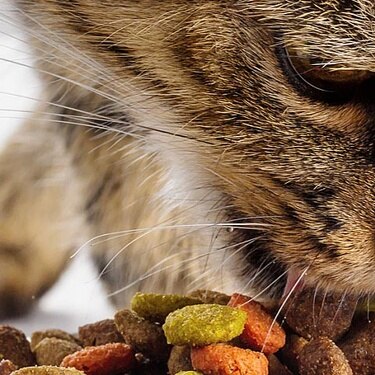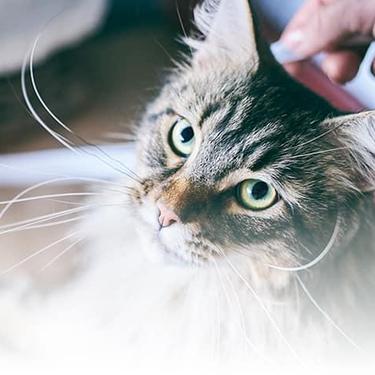
-
Find the right food for your petTake this quiz to see which food may be the best for your furry friend.Find the right food for your petTake this quiz to see which food may be the best for your furry friend.Featured products
 Adult Wet Dog Food with Beef
Adult Wet Dog Food with BeefHill's Science Plan Adult Multipack Wet Dog Food with Chicken, Beef & Turkey are complete premium pet foods for adult dogs from 1 year. Your dog will love these deliciously smooth and savoury minced loaves, formulated for balanced nutrition and overall health.
Shop Now Mature Adult Dog Food
Mature Adult Dog FoodHill's Science Plan Mature Adult Multipack Wet Dog Food with Chicken & Beef are complete premium pet foods for mature adult dogs from 7 years. Your dog will love these deliciously smooth and savoury minced loaves, formulated to deliver the appropriate amount of energy to support the needs of adult dogs.
Shop Now Puppy Food
Puppy FoodHill's Science Plan Puppy Multipack Wet Dog Food with Chicken & Beef are complete premium pet foods for growing puppies from weaning until 1 year old and for pregnant and nursing dogs. Your puppy will love these deliciously smooth and savoury minced loaves, formulated for balanced nutrition and overall health.
Shop NowFeatured products Adult Multipack Wet Cat Food with Beef, Ocean Fish & Chicken
Adult Multipack Wet Cat Food with Beef, Ocean Fish & ChickenTender chunks in gravy for cats, with high-quality protein to maintain lean muscle. With vitamin E and omega-3s & -6s for healthy skin and balanced minerals to support healthy vital organs.
Shop Now Light Adult Multipack Wet Cat Food with Chicken & Ocean Fish
Light Adult Multipack Wet Cat Food with Chicken & Ocean FishTender chicken chunks in gravy for cats, with L-carnitine and fewer calories for ideal weight management. Packed with high-quality protein, omega-6s, and vitamin E for shiny fur and healthy skin.
Shop Now Mature Adult Wet Cat Food with Chicken
Mature Adult Wet Cat Food with Chicken
Tender chicken chunks in gravy for mature adult cats. Made with easy-to-digest ingredients, high-quality protein for lean muscle maintenance and antioxidant vitamins C+E for optimal health.
Shop Now -
Dog
- Dog Tips & Articles
-
Health Category
- Weight
- Food & Environmental Sensitivities
- Urinary
- Digestive
- Joint
- Kidney
-
Life Stage
- Puppy Nutrition
- Adult Nutrition
- Senior Nutrition
Cat- Cat Tips & Articles
-
Health Category
- Weight
- Skin & Food Sensitivities
- Urinary
- Digestive
- Kidney
-
Life Stage
- Kitten Nutrition
- Adult Nutrition
Featured articles The Incredible Science Behind Your Pet's Microbiome
The Incredible Science Behind Your Pet's MicrobiomeLearn what your pet's microbiome is, how it contributes to your pet's gut and overall health, and why nutrition is important in maintaining healthy microbiomes.
Read More Show some love with wet foods: a great choice for pets with health issues
Show some love with wet foods: a great choice for pets with health issuesShow some love with wet foods: a great choice for pets with health issues.
Read More The Right Diet For Your Pet
The Right Diet For Your PetIn people, the right diet is very important. If you are eating the wrong way for your metabolism, activity level, age and lifestyle you could end up with health issues.
Read More -


In your cat's world, nothing is off limits: inside boxes, underneath beds, on top of your keyboard. It's all fair game to a cat that wants to play, rest, hide, or is just plain curious. That cat privilege extends—in their mind—to your worktops, the upper reaches of a bookshelf, and even the top of the fridge. After all, cat jumping skills are top-notch.
Cats can easily exceed altitudes six times their height. A study in the Journal of Experimental Biology reports that cats are superior jumpers because of the limb length and muscle mass of their back legs. Cats start a jump in a very deep crouch, then lift their front legs before "an explosive extension" of their back legs.
While there is no argument that a cat's jumping ability is impressive, it can also be annoying (and dangerous, as Blue Cross notes that, contrary to the popular myth, cats don't always land on their feet) to have cats regularly leaping to spots in your home that you would prefer to be cat-free zones.
How can pet parents keep cats off furniture, shelves, worktops, and anywhere else in the home that are off-limits?
Clean off Shelves
Cats are naturally curious. A pen, a set of keys, or a fragile knick-knack can catch their attention and tempt them to jump up and explore this "toy" that has been left for them to find. By keeping shelves clear of clutter, you can also lessen your cat's interest in exploring places you don't want them to go. This can also be beneficial to you as cats are known for knocking things off shelves, and unfortunately they aren't good at handling a dustpan and brush to clean up the mess after themselves.
Keep Food off Kitchen Worktops
A cat's sense of smell is much better than yours, so if they smell something tasty, they are likely to jump up and try to sneak a nibble. That can be dangerous for them, depending on what the food is. By keeping surfaces clear of food and crumbs, you'll remove the possibility of your cat getting a reward from leaping onto your kitchen worktops. If you find that your cat is intensely curious about what you're making for dinner—and won't stay off the worktops while you're preparing it—simply shut your cat in another room until the kitchen is clean.


Tasty Tips
Shut the Blinds
Cats like to jump onto windowsills to take in the outdoor view. If there's a windowsill that you don't want your cat to use, simply shut the blinds to take away the TV. But make sure you give your cat at least one spot to look outside, as cats enjoy watching the world go by.
Give Them an Alternative
A cat tower gives your furry friend a place to jump, exercise, and explore. Keep it interesting for them by rotating the toys, and give them boxes to hide in and crumpled pieces of paper to bat around. Be imaginative! Cat trees are also an excellent way to let your cats jump and climb to their heart’s desire. Make sure that the one you choose is sturdy and won’t wobble or topple if your cat engages in some energetic acrobatics. It's important to note that you shouldn't completely eliminate your cat's ability to jump. It's an innate behaviour inherited from their lives as wild cats, where they would climb trees to escape predators and stalk their prey from high above before pouncing. Providing an approved place for exercise and jumping will also help keep your cat off of other high areas where they might not be welcomed.
Use Double-Sided Tape
Cats hate the feel of double-sided tape on their paws, so it can be a good deterrent for a cat who continues to jump to a place you don't want them to go.
Understand Their Jumping Behaviour
It's true that jumping is coded in your cat's DNA. They’re hardwired to enjoy being up high where they’re safe, but it’s also good as the parent to understand the need to be hidden away from everyone. If you notice your cat jumping up high more frequently or shying away in hard-to-reach areas like cabinets, it might be because they’re stressed or not feeling their best. While cats are predators, their small size also makes them prey, and cats that are sick or injured will mask signs of illness or even hide themselves away to keep out of reach of predators. They might also be trying to get away from some other sort of danger if they feel afraid. It's helpful to understand what they might be fearful of so that you can manage the environment and make it feel safer for them to engage in their normal behaviour again.
Cats are natural jumpers so you shouldn't discourage the behaviour altogether. But with a little training, you can teach your cat where not to leap.


Kara Murphy is a freelance writer and pet parent who lives in Erie, Pa. She has a goldendoodle named Maddie.
Related products

Tender chunks in gravy for cats, with high-quality protein to maintain lean muscle. With vitamin E and omega-3s & -6s for healthy skin and balanced minerals to support healthy vital organs.


Tender chicken chunks in gravy for mature adult cats. Made with easy-to-digest ingredients, high-quality protein for lean muscle maintenance and antioxidant vitamins C+E for optimal health.

Tender chicken chunks in gravy for cats, with L-carnitine and fewer calories for ideal weight management. Packed with high-quality protein, omega-6s, and vitamin E for shiny fur and healthy skin.
Related articles

Chocolate is known to be poisonous for dogs, but it can also be toxic for cats. Learn why chocolate is bad for cats & what to do if she's eaten it.

From essential vitamins & minerals to different types of meat, learn what to look for when choosing the best cat food for your feline.

There are three common ways to feed a cat. Each way has its advantages and disadvantages.

Learn how to make homemade cat treats that are healthy for your pet with this recipe from Hills Pet Nutrition.

Put your cat on a diet without them knowing
Our low calorie formula helps you control your cat's weight. It's packed with high-quality protein for building lean muscles, and made with purposeful ingredients for a flavourful, nutritious meal. Clinically proven antioxidants, Vitamin C+E, help promote a healthy immune system.
Put your cat on a diet without them knowing
Our low calorie formula helps you control your cat's weight. It's packed with high-quality protein for building lean muscles, and made with purposeful ingredients for a flavourful, nutritious meal. Clinically proven antioxidants, Vitamin C+E, help promote a healthy immune system.

